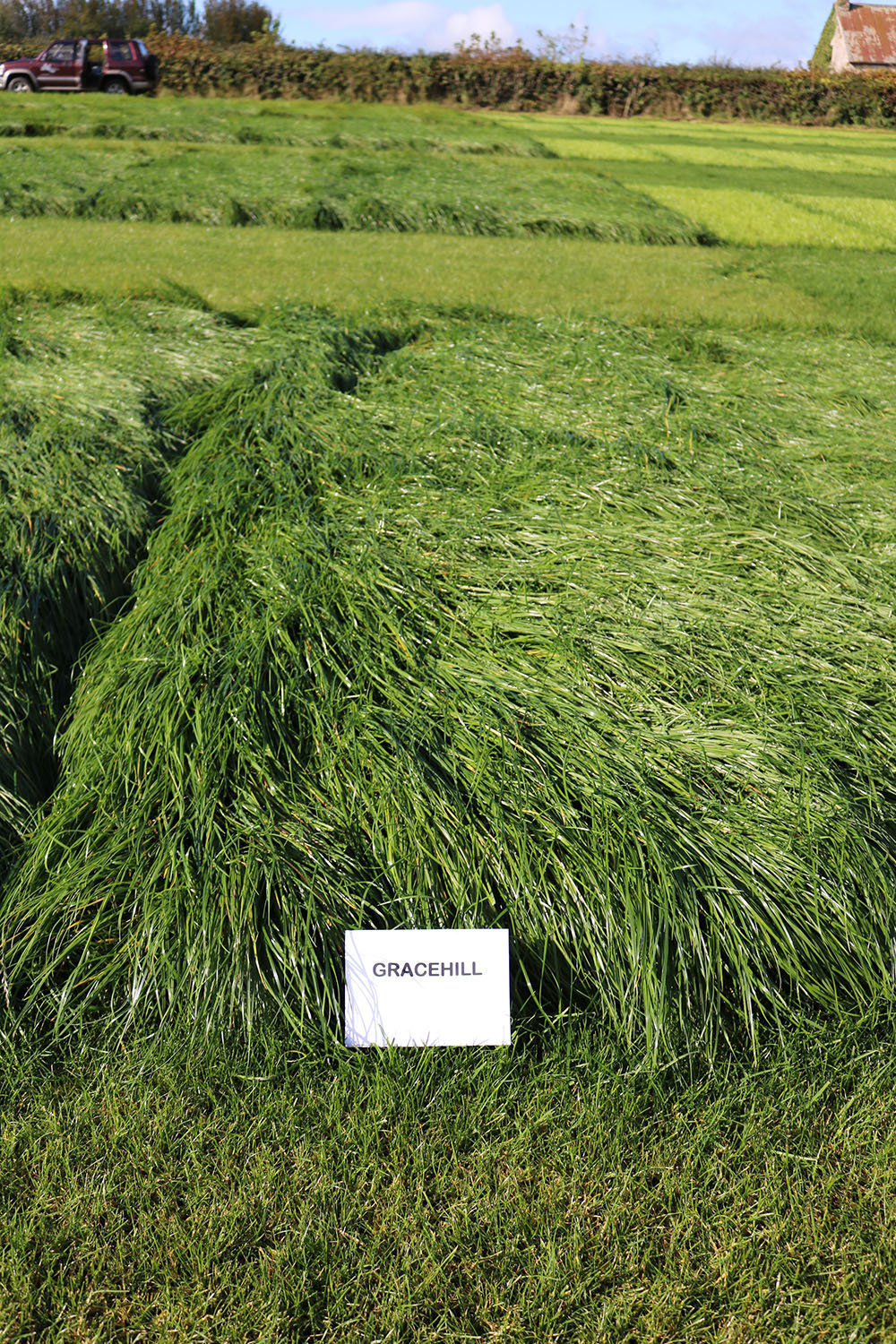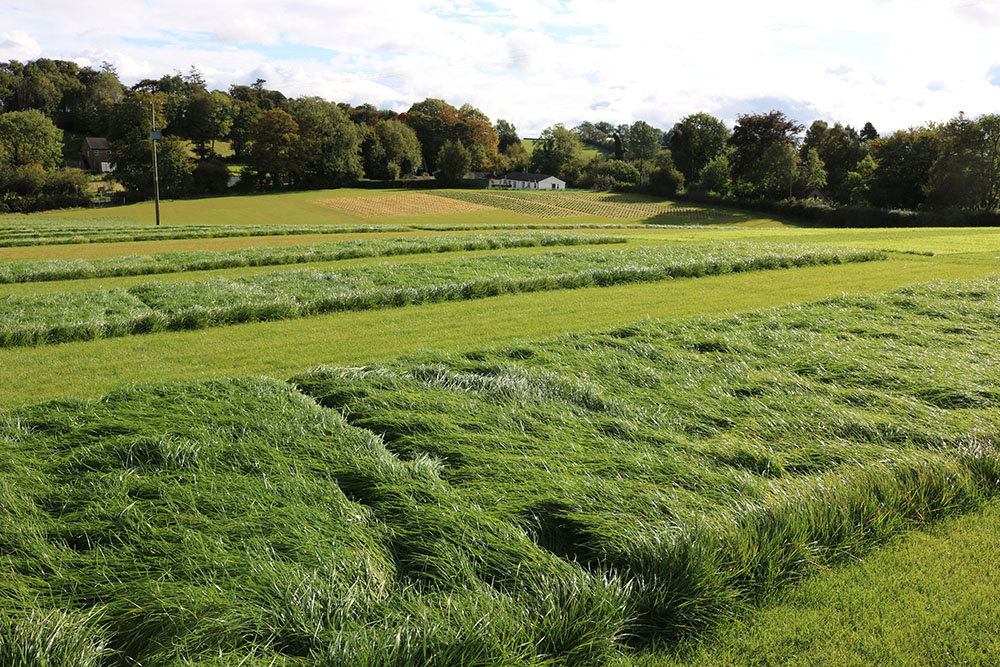Today’s farms require grasses that produce consistently high yield and quality at the right time of year. Farmers are now choosing seed mixtures with varieties suited to their farm’s specific requirements. On any farm the fields can vary in soil type, drainage capacity, slope and orientation as well as their use which could be silage-only on outlying fields, intensive paddock grazing or priority fields for late winter/early spring growth. The Agri-Food and Biosciences Institute (AFBI) as a leading plant breeder, in collaboration with Barenbrug UK, as a successful commercialisation partner are dedicated to ensure there are a range of grasses to meet these requirements.
The AFBI-Barenbrug partnership now has nineteen ryegrass varieties listed on the 2020/2021 Recommended Grass and Clover Lists (RGCL), with varieties such as Gracehill (a late heading tetraploid ryegrass) being one of the newest additions. Each of the AFBI-bred varieties have been proven to show increased performance and have been bred for use in specific situations as part of high-performing cutting and grazing mixtures.
The extensive range of varieties available have been specifically bred for superior performance under local environmental conditions. Advances in grass breeding research at AFBI mean that new varieties show significant improvements in traits such as yield, digestibility and disease resistance, compared with varieties currently available, which is important in reducing the carbon footprint of the agricultural sector whilst increasing productivity. As well as the rigorous real-world testing of all new varieties and breeding lines at AFBI Loughgall, further evaluations are completed by Barenbrug UK, on sites across the UK and ROI. As the AFBI-Barenbrug partnership continues to deliver, the team continue to use advances in grass breeding science to develop a steady supply of new varieties that can meet the ever changing demands of the future grassland industry in Northern Ireland and beyond.
To maximise the range of varieties on offer and ensure seed availability Barenbrug UK have stepped up the seed production of their leading varieties Glasker, Bannfoot, Gracehill and Galgorm which will be available for spring 2021. All of these varieties have successfully passed rigorous evaluation at testing sites across the UK and confirms the ongoing success of the grass breeding research programme with Barenbrug UK & AFBI Loughgall, funded by the Department of Agriculture, Environment and Rural Affairs (DAERA).
Glasker is an early maturing ryegrass that can produce extra spring forage at that critical time of the year. In contrast the hybrid ryegrass variety Bannfoot can supply extra yielding capacity especially during the silage cutting season. Hybrid ryegrass varieties combine the useful characteristics of their perennial and Italian ryegrass parents and are especially useful in multi-cut silage and haylage production systems.
Gracehill is a late heading tetraploid ryegrass. Such varieties are now increasingly sought after for use on intensively managed grazing platforms. Gracehill heads on the 1st June and has proven to be an excellent all-round performer right across the growing season, producing superb annual yields of highly digestible grass under both grazing and silage management with extremely high metabolizable energy (ME) yields per hectare (+108% and 104% of the mean of all other late tetraploid varieties on the RGCL list).
Another leading variety is Galgorm, an intermediate heading diploid, which was first listed in 2018. It has remained in top position on the list for total yield in both grazing and silage management ever since. No other intermediate diploid variety on the list produces more ME yield per hectare under grazing management (106% of the mean of all intermediate diploid varieties on the list) and is very persistent in grazing swards.
Ultimately grass is the most important crop on farms in Northern Ireland and one of the most efficient ways of sustaining productivity from grass is to breed top performing, resilient varieties that are adapted to local farming requirements and conditions. The ongoing research and development work undertaken by AFBI & Barenbrug UK ensures that a steady supply of new varieties are produced that can meet the ever changing demands of the grassland and livestock industries right across the UK.

New AFBI variety Gracehill - a late heading tetraploid perennial ryegrass

Variety performance trials at AFBI Loughgall




